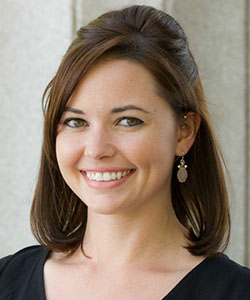By Kendra Brown for BiolawToday.org.
 The United States Supreme Court has agreed to hear another challenge to the Affordable Care Act’s (ACA) preventive care mandate.[1] The ACA requires that employers through their healthcare plans provide at no cost the full range of FDA-approved contraceptives. In Burwell v. Hobby Lobby,[2] a closely held for profit corporation challenged the mandate asserting that it implicated the deep religious convictions of many employers. As a result, the Department of Health and Human Services (HHS) decided to exempt only some nonprofit religious employers from compliance.[3] These exempted organizations, on a list provided by the IRS, are not required to fill out a tax exemption form based on their religious objection to the mandate—they are automatically exempted and do not need to file any paperwork.
The United States Supreme Court has agreed to hear another challenge to the Affordable Care Act’s (ACA) preventive care mandate.[1] The ACA requires that employers through their healthcare plans provide at no cost the full range of FDA-approved contraceptives. In Burwell v. Hobby Lobby,[2] a closely held for profit corporation challenged the mandate asserting that it implicated the deep religious convictions of many employers. As a result, the Department of Health and Human Services (HHS) decided to exempt only some nonprofit religious employers from compliance.[3] These exempted organizations, on a list provided by the IRS, are not required to fill out a tax exemption form based on their religious objection to the mandate—they are automatically exempted and do not need to file any paperwork.
The “Little Sisters of the Poor Home for the Aged” (Little Sisters), the petitioners in the new case, challenges this exemption because it does not extend far enough. First, the Little Sisters assert that their religious organization does not fall under the IRS’s list of automatically exempted organizations. Second, because they are not on this list, the Little Sisters assert that the accommodation provided by Hobby Lobby [4] is not actually an exemption.
Subscribe to email from the Center for Law and Biomedical Sciences »
The decision in Hobby Lobby allowed religious organizations to object to the preventive care mandate. In this case, the Little Sisters are allowed to use their sincere religious beliefs as an objection to the mandate, and need only file an exemption with the IRS so they do not face the “draconian fines” for not complying.[5] However, the Little Sisters claim that filling out this form is a substantial burden on their religious beliefs and that they should be automatically exempted. They claim that filing this form still makes them “morally complicit in grave sin.”[6]
The questions presented to the Supreme Court are:
- Does the availability of a regulatory method for nonprofit religious employers to comply with HHS’s contraceptive mandate eliminate either the substantial burden on religious exercise or the violation of RFRA that this Court recognized in Burwell v. Hobby Lobby Stores, Inc., 134 S.Ct. 2751 (2014)?
- Can HHS satisfy RFRA’s demanding test for overriding sincerely held religious objections in circumstances where HHS itself insists that overriding the religious objection will not fulfill HHS’s regulatory objective – namely, the provision of no-cost contraceptives to the objector’s employees?
- Does the First Amendment allow HHS to discriminate among nonprofit religious employers who share the same sincere religious objections to the contraceptive mandate by exempting some religious employers while insisting that others comply? [7]
The Court will hear only the first two question presented during the 2016 Term.[8] Thus, it appears that Hobby Lobby didn’t draw a clear line in determining the extent to which religion can have an impact on the new healthcare system. On the one hand, the IRS list of exempted organizations might appear broad and extensive—considering what is at stake, which is the autonomous decision of women to take control of their bodies. But on the other hand, it does not include every possible religious group or sincere belief within the corporate and nonprofit realm of employers. Therefore, the Court’s decision in Hobby Lobby appears to have granted the IRS the opportunity to decide which religious organizations can fall within the exemption, while determining that other religious organizations aren’t quite religious enough. Hobby Lobby provided a very clear slippery slope argument of how much religion is enough. Might it have been better not to create an automatic exemption and required all religious organizations to file for religious exemptions? Will this be the outcome the Court reaches in the Spring 2016 Calendar, or will they choose to allow an even broader interpretation of Hobby Lobby?
Kendra is currently a second year student at the S.J. Quinney College of Law and is a member of the Utah Law Review as well as the Student Director for the Medical-Legal Clinic. Kendra graduated from the University of Utah in 2009 with a B.A. in History after transferring from Colorado State University. Kendra loves to travel, scuba dive, and play soccer.
[1] Little Sisters v. Burwell, 794 F.3d 1151 (10th Cir. 2015), cert. granted, 2015 WL 6759642 (2015). See, Ariane de Vogue, Supreme Court to hear new challenge to Obamacare contraception mandate, CNN.com (Nov. 6, 2015) http://www.cnn.com/2015/11/06/politics/supreme-court-obamacare-contraception-mandate/; Linda Greenhouse, A religion case too far for the Supreme Court?, NY Times (July 23, 2015).
[2] 134 S. Ct. 2751 (2014).
[3] Internal Revenues Services, Annual Exempt Organization Return: Who Must File (Mar. 20, 2015) https://www.irs.gov/Charities-&-Non-Profits/Annual-Exempt-Organization-Return:-Who-Must-File.
[4] Brief for Petitioner, Little Sisters v. Burwell, 2015 WL 6759642 (2015); see Burwell v. Hobby Lobby Stores Inc., 134 S. Ct. 2751 (2014).
[5] Internal Revenues Services, Annual Exempt Organization Return: Who Must File (Mar. 20, 2015) https://www.irs.gov/Charities-&-Non-Profits/Annual-Exempt-Organization-Return:-Who-Must-File. See Robert Barnes, At the Supreme Court, ‘Little Sisters of the Poor’ has a ring to it, Washington Post (Oct. 18, 2015).
[6] Brief for Petitioner, Little Sisters v. Burwell, 2015 WL 6759642 (2015).
[7] Little Sisters v. Burwell: Questions Presented, Supreme Court of the United States (Nov. 6, 2015).
[8] Id.
